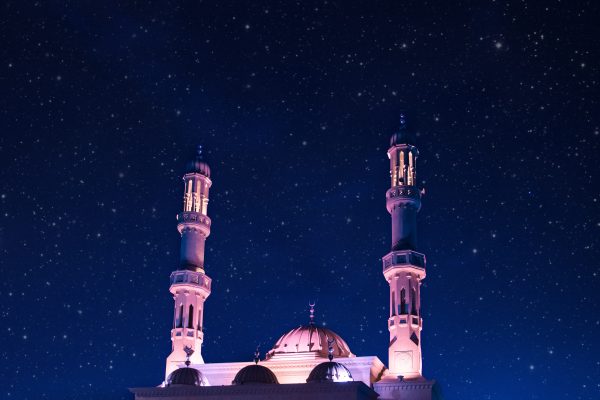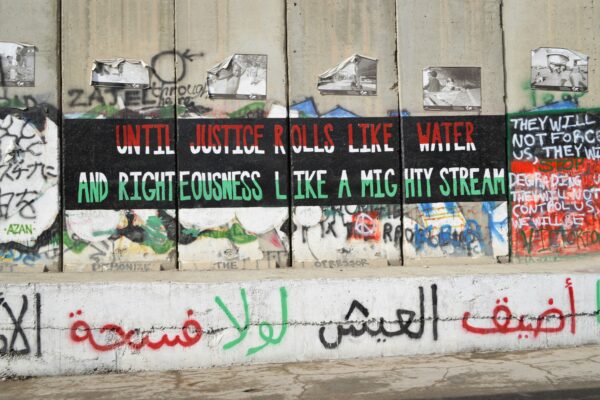“Those who believe, and work righteousness,- their Lord will guide them because of their faith: beneath them will flow rivers in gardens of bliss” (Quran 10:9)
“Those who believe, and work righteousness,- their Lord will guide them because of their faith: beneath them will flow rivers in gardens of bliss” (Quran 10:9)
In my newly published book “The Eternal Path of Charity“, I attempted to learn about the divine commandment that was meant for both the universe and humanity.
The first connection that I could make is that both the universe and human beings are created to be in constant movement, which means dynamic and imbalanced systems. I understood that nature is imbalanced in energy because the sun does not equally warm up the different regions of earth.
As for humanity, the inequity is due to the fact that Allah (SWT) created us within a “gradient” of wealth including finances, material elements, health, appearance, intelligence to learn and the ability to master different skills.
The book starts by an introduction of the most fundamental elements in Islam which are : (1) Eaql (Mind) , (2) Fitrah ( Goodness) and (3) Tawheed ( Law of Divine Oneness). For the Fitrah, it is now scientifically proven that human beings are born with the natural willingness to help others. This is the topic of the book: Charity.
“And He has raised up the heaven and has set a balance” (Quran 55 :7)
Based on this Quranic verse, the two first chapters of the book contain a scientific approach and a spiritual look at nature to show that movements in nature are all driven by Charity.
Indeed, I used the 2nd law of thermodynamics to explain that Allah (SWT) made balance and harmony in nature using two divine laws of charity. The natural movements of the water cycle are indicated in this Quranic verse “By the sky which returns [rain]” (Quran 86:11)
“Surely Allah enjoins justice, kindness and the doing of good to kith and kin” (Quran 16:90)
Because humanity is part of the universe, we should also obey the divine laws of charity. Therefore, the next three chapters are about the importance of charity in Islam. Indeed similar to nature, it is clear in this Quranic verse that charity is part of our faith.
“O children of Adam, take your adornment at every masjid, and eat and drink, but be not excessive. Indeed, He likes not those who commit excess” (Quran 7:31)
Since consumption is a selfish concept opposite to charity, I tried to explain that the challenges we are facing today (global warming, covid,..) are just signs from Allah (SWT) to help humanity to switch their lifestyle from consumerism to charity-based societies.
“And I did not create the jinn and mankind except to worship Me” (Quran; 51:56)
Therefore, according to this Quranic verse, the wisdom that will save humanity from more misfortunes is to obey the divine laws of charity of the Merciful (SWT) who created us and certainly knows what is best for us.
In this perspective, in order to shift from consumerism to charity-based societies, some people are already adopting “minimalist” lifestyle. The most important benefits of this new way of life are reducing waste to help the environment, decreasing global carbon dioxide emissions and saving money and time used for excess consumption to worship Allah (SWT) by helping others during charity-based activities.
“Just as We have sent among you a messenger from yourselves reciting to you Our verses and purifying you and teaching you the Book and wisdom and teaching you that which you did not know” ( Quran 2 :151)
Because education is key to solve these global challenges, the book also proposes an educational model based on the teaching methods (analogies and active learning) of Prophet Mohamed (SAW).
In order to teach natural and social sciences under the umbrella of the Tawhidic Paradigm, Quranic verses and the Prophet (SAW)’s sayings could be integrated in the corresponding chapters of the textbooks and the teaching material. Therefore, teachers should not only have the expertise in their field of science but also a good knowledge of the Noble Quran and The Prophet (PBUH)’s sayings.
The final goal of this Islam-based educational model is that the objectives of educational systems and scientific research will serve all humanity in order to solve local and global problems. Moreover, new scientific knowledge will be developed as a means to search for the Truth that brings us closer to Allah (SWT).
“Those who believe, and work righteousness,- their Lord will guide them because of their faith: beneath them will flow rivers in gardens of bliss” (Quran 10:9)
Besides the unseen garden of feeling the Mercy of Allah (SWT) in the Eternal Path of Charity, eternal gardens with flowing rivers are the last destination for the soul of the believers who please Allah (SWT) by helping people, animals and plants during their social and professional activities.
In conclusion, the most important lesson learned is that Allah (SWT) used nature as a universal school in order to show us that we should follow His Science based on Charity.
You can find The Eternal Path of Charity here.





